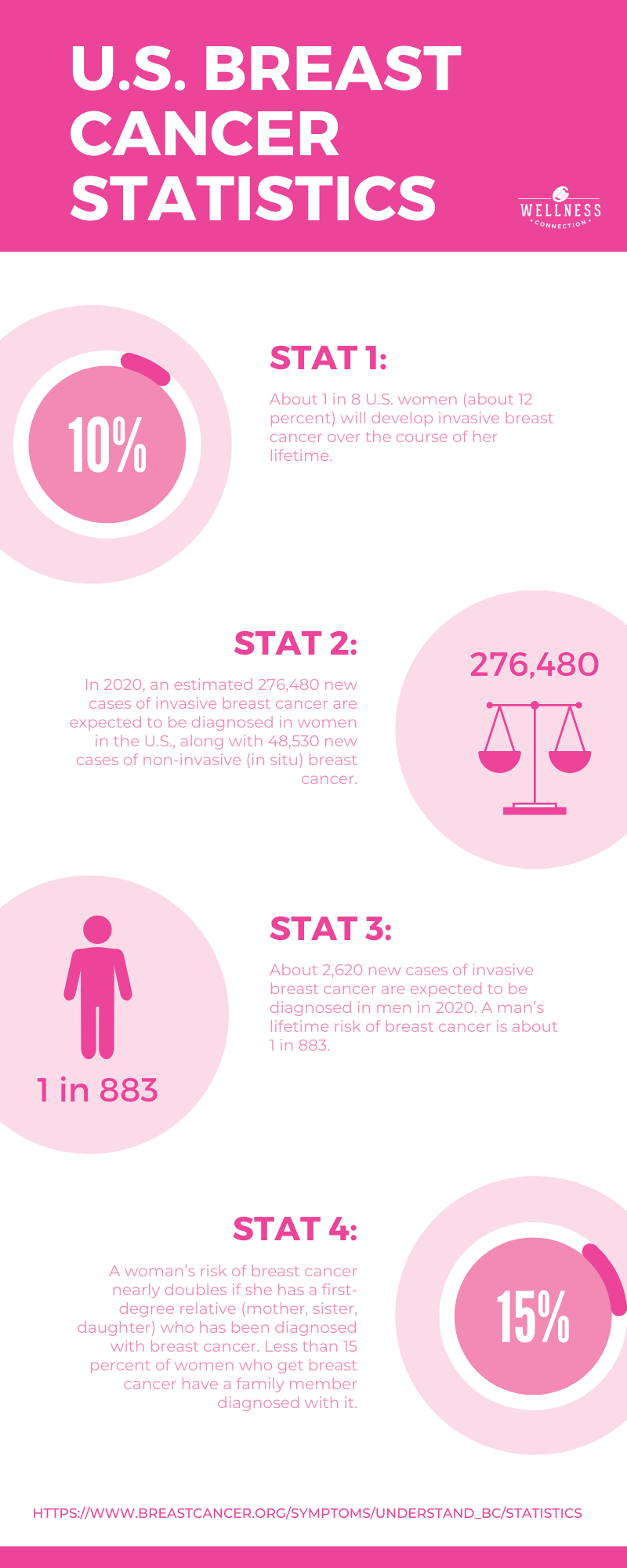In October, we wear pink, in honor of National Breast Cancer Awareness month.
And while breast cancer continues to be the most commonly diagnosed cancer among American women – aside from skin cancer – cannabis is emerging as a way to help with the often debilitating side effects of chemotherapy and overall discomfort caused by the illness.
In a Chicago Tribune article published in 2018, Mary Paris, who is 60 and has breast cancer that has metastasized to her bones, couldn’t sleep and described her pain as “horrible.” Her doctor talked to her about medical marijuana.
After trying cannabis, Mary said her sleep improved and she felt like she had better mobility while experiencing less pain.
The article also reports that according to the Illinois Department of Public Health, between 2014 when it began accepting applications for medical marijuana — and September 2017, it had approved 24,000 patients. A year later, the total is 44,000.
The numbers shouldn’t be surprising. Back in 2015, Newsweek reported that a growing number of cancer patients and oncologists viewed the drug as a viable alternative for managing chemotherapy’s effects.
“A day doesn’t go by where I don’t see a cancer patient who has nausea, vomiting, loss of appetite, pain, depression and insomnia,” said Dr. Donald Abrams, chief of hematology-oncology at San Francisco General Hospital and a professor of clinical medicine at the University of California, San Francisco. Marijuana, he said, “is the only anti-nausea medicine that increases appetite.”
In August 2018, Leafly wrote a story about a mother and daughter’s experience entering into the Maine medical marijuana program. The mother, Marty Rowe, in her late 80s, was diagnosed with lymphoma in July 2016 and was able to obtain a medical marijuana card in addition to receiving aggressive chemotherapy treatments. Rowe was prescribed various forms and strains of cannabis at the Wellness Connection in Bath to help with the pain and stress she was experiencing. Her cancer went into remission several months later.
Even the National Cancer Institute, the federal government’s principal agency for cancer research admitted that cancer cells have been killed by cannabis in a lab. On their website, they provide a basic overview of what cannabis is and how cannabinoids affect the human body. There it says, “Cannabis has been shown to kill cancer cells in the laboratory.”
That was back in 2015.
Though there are anecdotal reports, most cancer doctors still aren’t well informed about the plant medicine, including how to advise on appropriate dosages, the best form an individual should take and whether it might help in general.
A study, released by the Journal of Clinical Oncology, revealed oncologists beliefs, knowledge and practices about cannabis use. While only 30 percent of 237 oncologists felt sufficiently informed to make recommendations regarding medical marijuana, 80 percent had discussions about medical marijuana with patients and 46 percent recommended medical marijuana clinically.
The American Cancer Society addresses the use of cannabis in aiding individuals with cancer on their website, acknowledging the classification of marijuana as a Schedule 1 drug “imposes numerous conditions on researchers and deters scientific study of cannabinoids.” The organization “supports the need for more scientific research on cannabinoids for cancer patients and recognizes the need for better and more effective therapies that can overcome the side effects of cancer.”
But still, breastcancer.org, acknowledges that cannabis can ease pain, nausea/vomiting, hot flashes, loss of appetite, anxiety and insomnia caused by breast cancer diagnosis and treatment. Doctors in states where adult use is legal have had a leg up on seeing results from the patients they are treating.
“I’ve mainly seen it used in conjunction with prescription drugs to control pain and other side effects in patients living with metastatic disease,” said Virginia F. Borges, M.D., MMSc., professor of medicine and director of the Breast Cancer Research Program at the University of Colorado Cancer Center. “It’s rare that a person living with metastatic breast cancer would have only one side effect to manage. So, by adding in medical marijuana, it often allows me to cut back on the number of drugs I prescribe.”
Here are some brief stats on Breast Cancer:




awesome